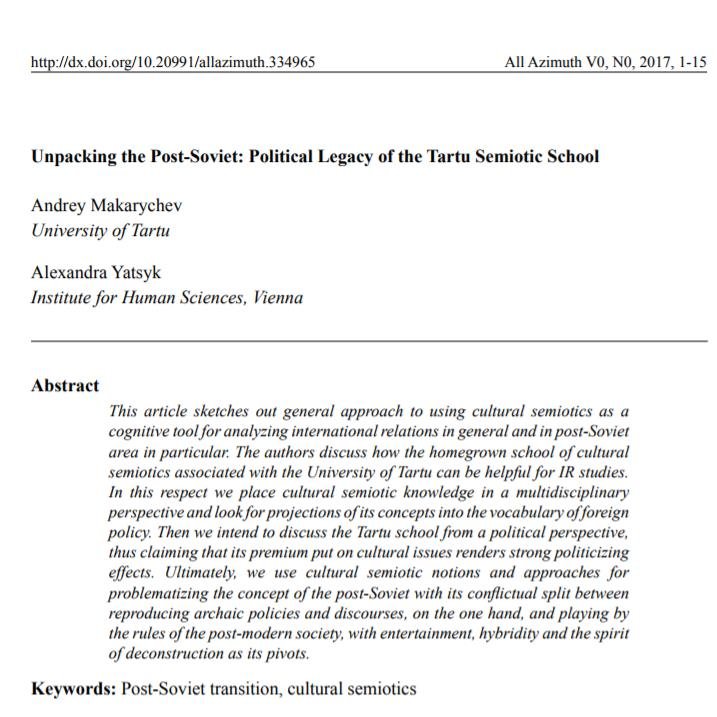(All Azimuth) (Co-authored with A. Yatsyk) Abstract: This article sketches out general approach to using cultural semiotics as a cognitive tool for analyzing international relations in general and in post-Soviet area in particular. The authors discuss how the homegrown school of cultural semiotics associated with the University of Tartu can be helpful for IR studies. In this respect we place cultural semiotic knowledge in a multidisciplinary perspective and look for projections of its concepts into the vocabulary of foreign policy. Then we intend to discuss the Tartu school from a political perspective, thus claiming that its premium put on cultural issues renders strong politicizing effects. Ultimately, we use cultural semiotic notions and approaches for problematizing the concept of the post-Soviet with its conflictual split between reproducing archaic policies and discourses, on the one hand, and playing by the rules of the post-modern society, with entertainment, hybridity and the spirit of deconstruction as its pivots.











